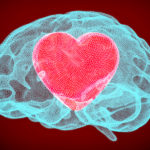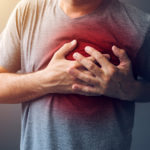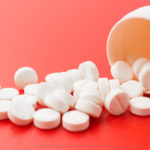By David Blyweiss, M.D., Advanced Natural Wellness
December 13, 2017
- New guidelines might say you have high blood pressure
- Which blood pressure medication is best for you?
- Natural ways to lower your blood pressure
You may be shocked. You may think your doctor has given you an incorrect diagnosis. And you may go home with an entirely new prescription that you never expected to see in your health arsenal: blood pressure medication.
I’ll tell you right now. You are not alone. The guidelines for high blood pressure have changed.
Until last month, high blood pressure was defined as having a top number of 140 (systolic) and 90 on the bottom (diastolic). But the new parameters presented by numerous agencies, including the American Heart Association, the American College of Cardiology and other organizations changes all of that.
In a matter of minutes, the definition of high blood pressure was officially reduced. Today a reading of 130/80 or higher could send your doctor running to the prescription pad for a blood-pressure-lowering agent.
This means that, from one day to the next, nearly half of Americans are now considered hypertensive. And if you fall into this new category, you have to ask the question: Is your high blood pressure real, or is it just another money maker for Big Pharma?
MD Exposes the Hidden Danger to Your Eyes

When your eyesight starts to fail, it's a real problem. Suddenly you can't go to the grocery store... you can't get to the doctor if you have an emergency... you can't meet your friends for dinner…
Your "regular" doctor doesn't have time to keep up with the latest research. And the same goes for eye doctors. They go to school to learn how to fit you for glasses and contacts, but have no way of preventing the damage and loss of eyesight that threatens your freedom and independence.
Let me show you something that explains a LOT about how your eyes work.
In my FREE Special Report, I'll show you a HUGE, untapped resource for your eyes that safely and naturally restores clear, effortless eyesight.
Click here to get started...
Well, I’ll be entirely honest with you about this. It reeks of the same underhanded tactics statin drug makers have implemented in recent years to make statins a household name. It has the distinct stench of Big Pharma making deals with government officials.
With that in mind, here’s what you must know before making your next move.
Which Blood Pressure Medication is best for You?
Even before these new guidelines were introduced, too many people – including you or some of your family members – may be taking drugs to control their blood pressure.
But these medications don’t come without dangers. Here’s what you should know prior to taking any blood pressure lowering medication.
Certain types of beta blockers like atenolol and metroprolol can worsen glycemic control, lower HDL and increase triglycerides. All of these events actually increase your risk of heart disease.
Calcium channel blockers rob vitamin C from your cells, creating microscopic damage to arterial walls that promotes the build-up of plaque in the arteries.
Diuretics reduce blood pressure by increasing the volume of water flushed out of your body. But they don’t just flush out water. They also flush out magnesium and potassium. And that’s not good. A loss of magnesium and potassium will directly weaken your heart. Diuretics also have a bad effect on your cholesterol and triglyceride profiles.
Another type of blood pressure medication, a class of drugs called ACE inhibitors, are associated with hyperkalemia. This is an abnormal elevation of potassium that can develop shortly after starting on the drugs.
Are You Suffering From...
- Love handles and a pot belly
- Romance that isn't what it used to
- Forgetfulness and inattention
- Low (or no) strength and endurance
- A sex drive that's shifted into neutral...or worse
If so...you may have Mature Male Burnout. Click here to discover more about this unique condition and what you can do about it.
Now, I don’t take high blood pressure lightly. However, there are other, healthier and more natural ways to can gain control of your blood pressure. No side effects included.
Natural Ways to Keep Your Blood Pressure at Healthy Levels
The best way to get a handle on your blood pressure is to develop healthy eating habits, get regular physical activity and maintain a healthy body weight. But if you need a little more help, there are natural substances that can have a dramatic effect on your blood pressure.
Increasing your nitric oxide (NO) levels is a great way to maintain healthy blood pressure. This compound helps relax and expand blood vessels. This allows blood to surge through them exactly the way it should – without having to force its way through the blood vessels.
You can get NO from some of the foods you eat, like leafy greens like arugula, spinach and kale. But unfortunately, you can’t really get a sustained NO boost with these foods.
Beetroot juice, on the other hand, is by far the top NO booster. So your best bet is a beetroot juice supplement. For example, as little as 250 ml of beetroot juice each day can lower your blood pressure by about 8/4 mmHg (8 points on the top number, 4 points on the bottom number). It also reduces arterial stiffness and thickening of the arteries.
I also recommend getting more garlic in your diet. The effects of this “stinky rose” are similar to those of the beta blocker atenolol, without the side effects. Garlic can also reduce plaque in your arteries and improve circulation.
Just two cloves a day will do the job. (Or if you want to keep your breath sweet smelling, try a supplement of 1200 mg. aged garlic extract each day in divided doses of 600 mg. twice a day.)
There’s also a little trick to counter the effects of too much salt. Just add 4,700 mg of potassium and 400 to 800 mg of magnesium in your regular diet. Most people do well with at least 5 mg. of magnesium per pound of body weight in two separate doses, morning and bedtime. Not only will these minerals improve your blood pressure, they’ll also cut your chances of coronary artery disease and stroke.
SOURCES:
Whelton PK, et al. 2017 ACC/AHA/AAPA/ABC/ACPM/AGS/APhA/ASH/ ASPC/NMA/PCNA Guideline for the Prevention, Detection, Evaluation, and Management of High Blood Pressure in Adults: Executive Summary: A Report of the American College of Cardiology/American Heart Association Task Force on Clinical Practice Guidelines. Hypertension. 2017 Nov 13. pii: HYP.0000000000000066. [Epub ahead of print]
Ivanov V, et al. Inhibition of collagen synthesis by select calcium and sodium channel blockers can be mitigated by ascorbic acid and ascorbyl palmitate. Am J Cardiovasc Dis. 2016; 6(2): 26–35.
Schoolwerth AC, et al. Renal considerations in angiotensin converting enzyme inhibitor therapy: a statement for healthcare professionals from the Council on the Kidney in Cardiovascular Disease and the Council for High Blood Pressure Research of the American Heart Association. Circulation. 2001 Oct 16;104(16):1985-91.
Hirst JA, et al. Quantifying the effects of diuretics and β-adrenoceptor blockers on glycaemic control in diabetes mellitus – a systematic review and meta-analysis. Br J Clin Pharmacol. 2015 May;79(5):733-43.
Webb AJ, et al. Acute blood pressure lowering, vasoprotective, and antiplatelet properties of dietary nitrate via bioconversion to nitrite.Hypertension. 2008 Mar;51(3):784-90.
Kapil V, et al. Dietary nitrate provides sustained blood pressure lowering in hypertensive patients: a randomized, phase 2, double-blind, placebo-controlled study. Hypertension. 2015 Feb;65(2):320-7.
Ashraf R, et al. Effects of Allium sativum (Garlic) on systolic and diastolic blood pressure in patients with essential hypertension. Pak J Pharm Sci. 2013 Sep;26(5):859-63.







